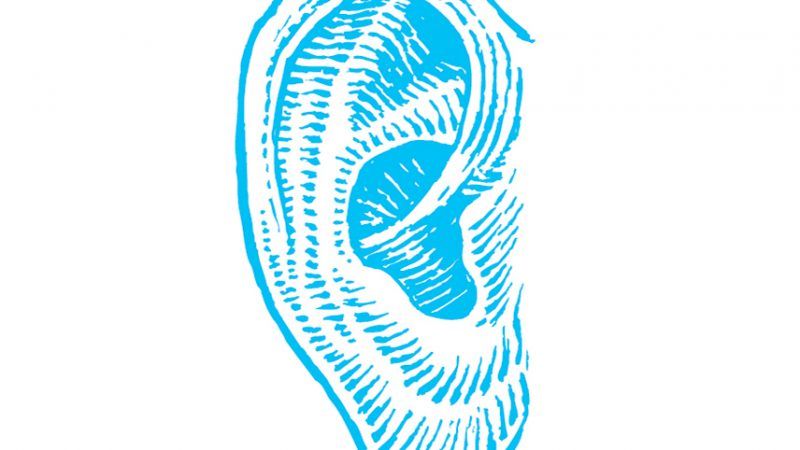Florida Lawmakers Deaf to the Needs of Hearing Aid Users
Florida says "hearing aid specialists" must pass multiple tests and be certified to conduct a full audiological exam, essentially quizzing them on skills and tech dating back to the 1950s.

It wouldn't make much sense to require employees at Best Buy to understand the inner workings of vacuum tubes. Or to mandate that Apple Store staffers be fluent in the ancient language of telephone switchboards. Yet Florida says "hearing aid specialists" must pass multiple tests and be certified to conduct a full audiological exam, essentially quizzing them on skills and tech dating back to the 1950s.
Those requirements are completely unnecessary for the proper fitting and testing of modern hearing aids, which are radically different than the obtrusive, potentially painful devices of your grandparents' era. Today's aids are sleek mini-speakers that nestle inside the ear canal. They can be configured over a Bluetooth connection with a computer or smartphone.
And making people take antiquated classes limits access to hearing assistance providers and drives up the costs of hearing care, according to one practitioner.
Dan Taylor has been a hearing aid specialist in Florida for more than 30 years. Last year, he declined to renew his license in protest of the onerous licensing rules. In response, the Sunshine State slapped him with a cease-and-desist letter, threatening to force him into an early retirement. In a federal lawsuit filed in April, Taylor challenged the legitimacy of Florida's hearing aid licensing scheme.
Taylor's lawsuit notes that he's not challenging the idea that hearing aids are medical devices. He continues to comply with many layers of federal rules.
But Florida's laws aren't merely out of step with the times. They're also at odds with those from the Food and Drug Administration (FDA). In 2016, that agency abolished a requirement that hearing aid specialists give comprehensive exams before fitting patients with devices. The FDA now says only that patients must have a prescription from a medical doctor before seeking out a specialist for a fitting.
"The federal government has studied and determined that the type of hearing aids Dan sells pose no meaningful health or safety risks," says Larry Salzman, an attorney with the Pacific Legal Foundation, which is representing Taylor.
The FDA is now actively urging states to kill rules like the one in Florida, which it says are "a barrier to access with no substantial enhancement of patient safety."
This article originally appeared in print under the headline "Florida Lawmakers Deaf to the Needs of Hearing Aid Users."


Show Comments (21)